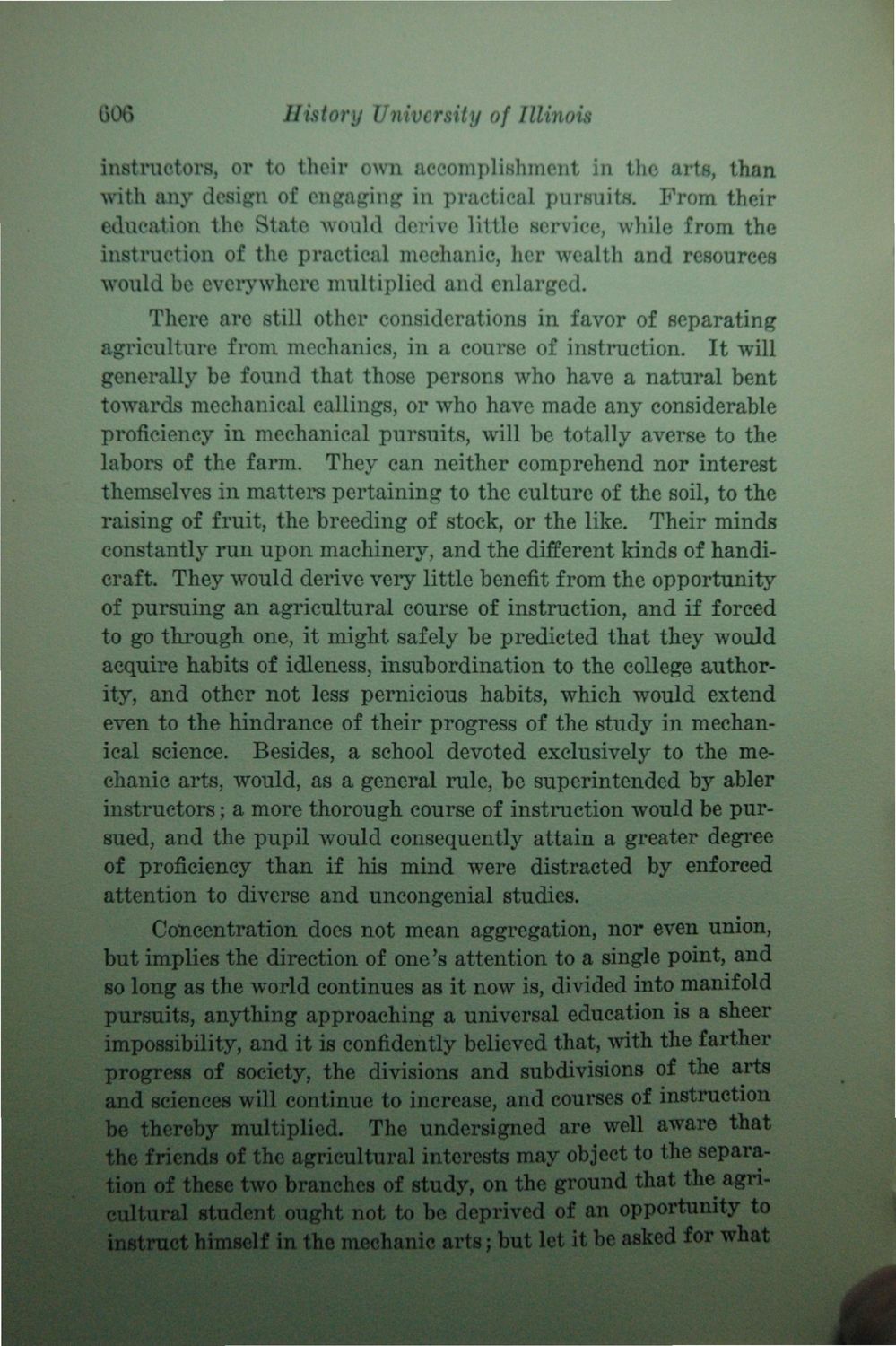| |
| |
Caption: Book - History of the University (Powell)
This is a reduced-resolution page image for fast online browsing.

EXTRACTED TEXT FROM PAGE:
606 History University of Illinois instructors, or to their own accomplishment in the arts, than with any design of engaging in practical pursuits. From their education the State would derive little service, while from the instruction of the practical mechanic, her wealth and resources would be everywhere multiplied and enlarged. There are still other considerations in favor of separating agriculture from mechanics, in a course of instruction. It will generally be found that those persons who have a natural bent towards mechanical callings, or who have made any considerable proficiency in mechanical pursuits, will be totally averse to the labors of the farm. They can neither comprehend nor interest themselves in matters pertaining to the culture of the soil, to the raising of fruit, the breeding of stock, or the like. Their minds constantly run upon machinery, and the different kinds of handicraft. They would derive very little benefit from the opportunity of pursuing an agricultural course of instruction, and if forced to go through one, it might safely be predicted that they would acquire habits of idleness, insubordination to the college authority, and other not less pernicious habits, which would extend even to the hindrance of their progress of the study in mechanical science. Besides, a school devoted exclusively to the mechanic arts, would, as a general rule, be superintended by abler instructors; a more thorough course of instruction would be pursued, and the pupil would consequently attain a greater degree of proficiency than if his mind were distracted by enforced attention to diverse and uncongenial studies. Concentration does not mean aggregation, nor even union, but implies the direction of one's attention to a single point, and so long as the world continues as it now is, divided into manifold pursuits, anything approaching a universal education is a sheer impossibility, and it is confidently believed that, with the farther progress of society, the divisions and subdivisions of the arts and sciences will continue to increase, and courses of instruction be thereby multiplied. The undersigned are well aware that the friends of the agricultural interests may object to the separation of these two branches of study, on the ground that the agricultural student ought not to be deprived of an opportunity to instruct himself in the mechanic arts; but let it be asked for what
| |